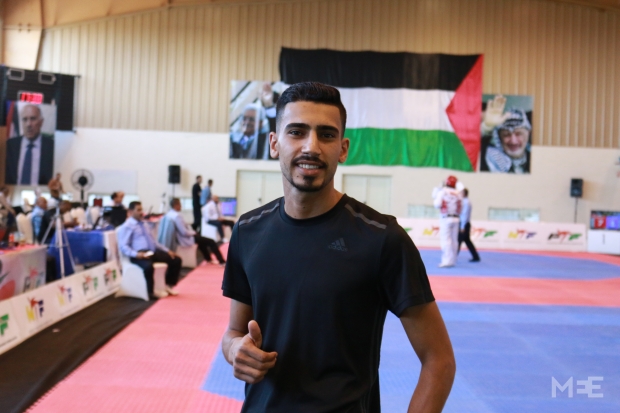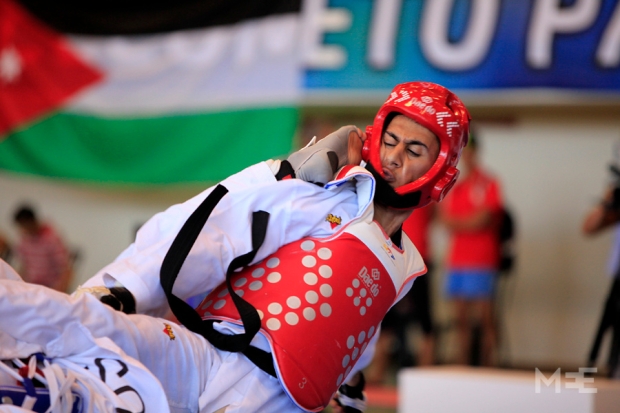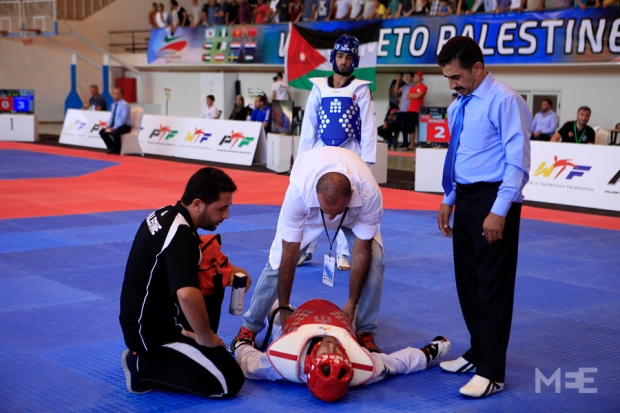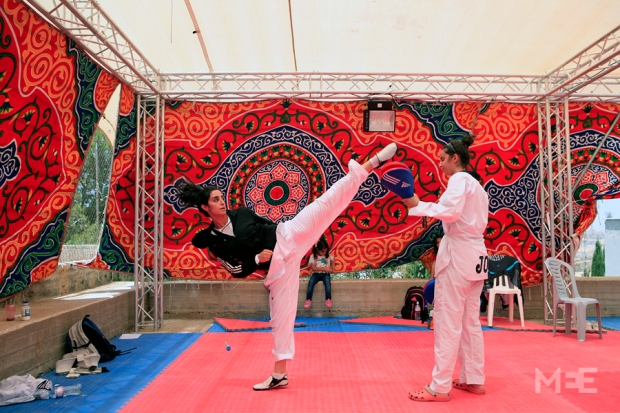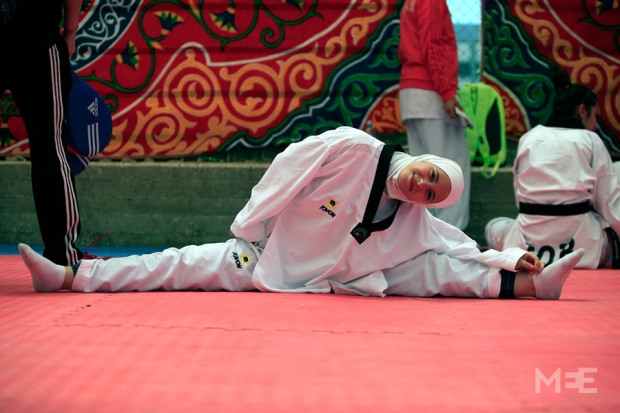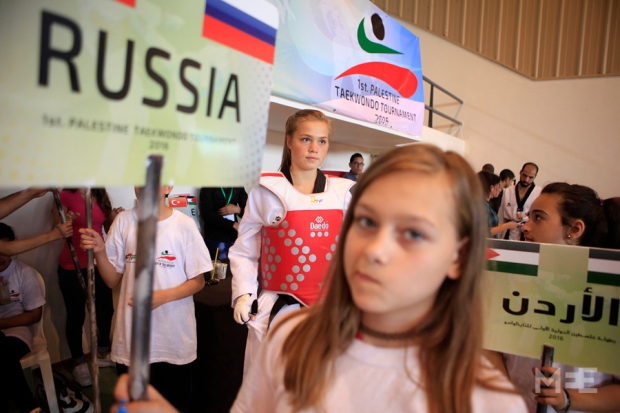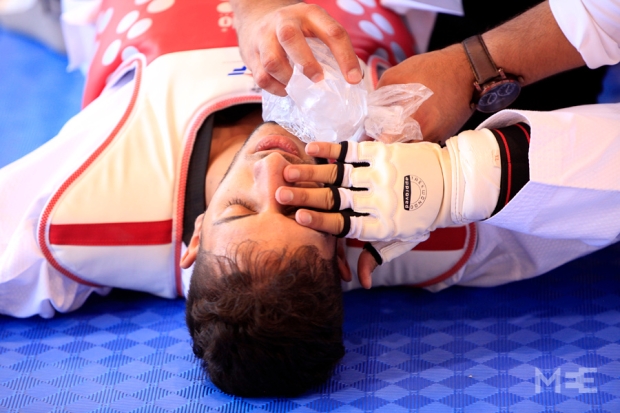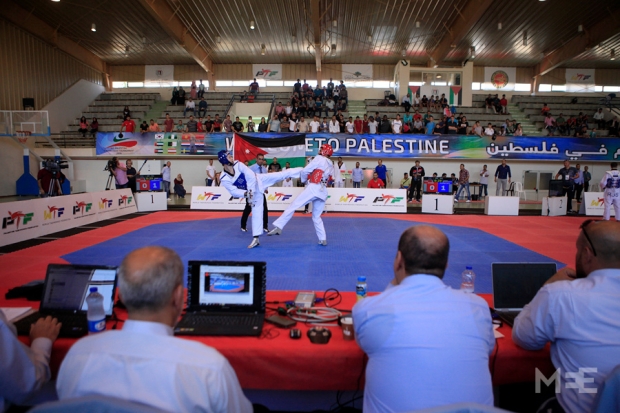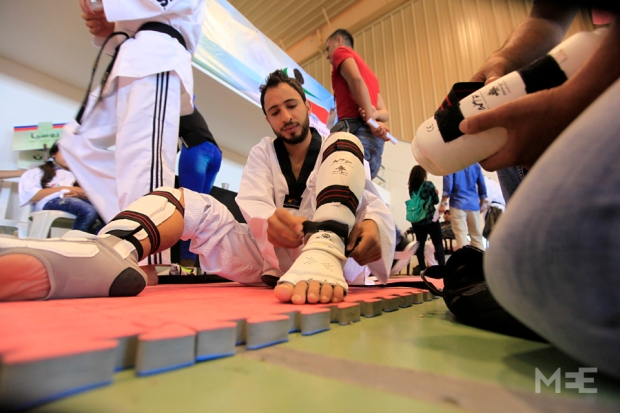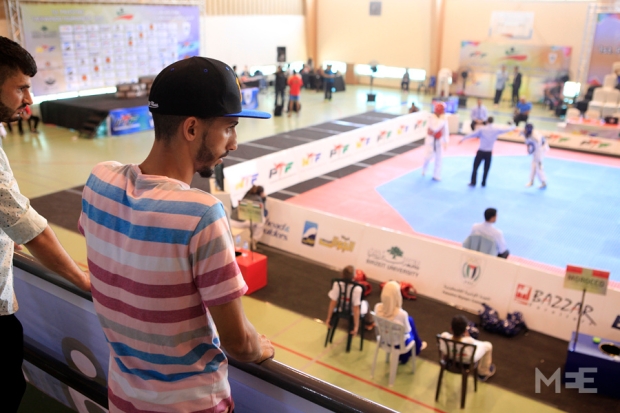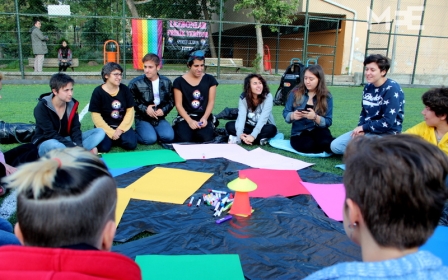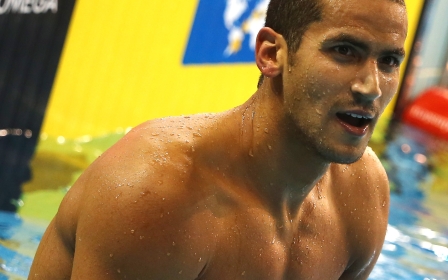Palestinians come out fighting in first international taekwondo tournament
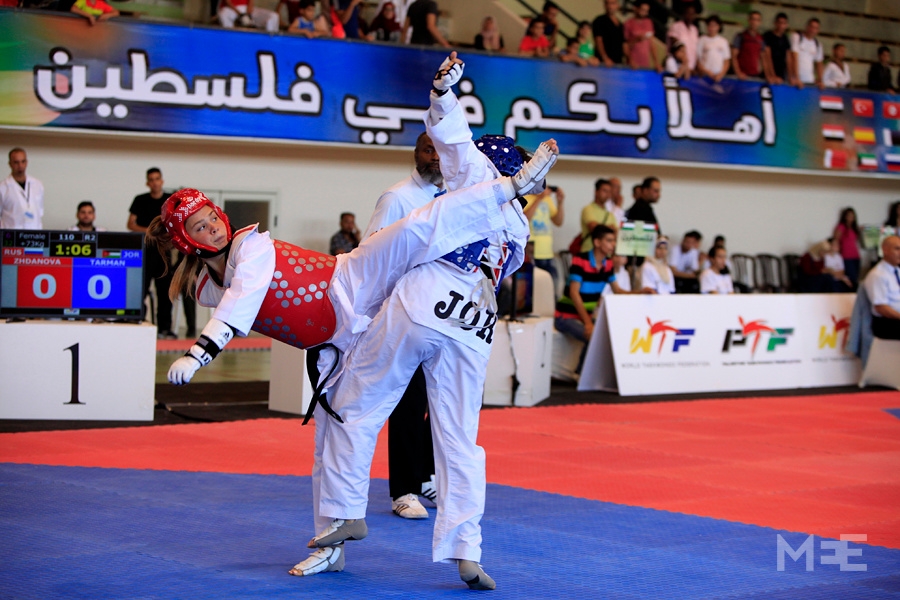
BIRZEIT, Palestine - It might have seemed like any other international tournament when taekwondo champion Malek Abu Alrob stepped onto the mat to face his opponent from Morocco. He looked up into the stands to see his family: his mother, father, three brothers, aunt and uncles, all there to cheer him on.
But this was not just any tournament for Malek. For the first time in his 16 years of taekwondo training, his entire family would see him compete at an international level in person. They would not have to watch him on television or listen to his matches on the radio because this time, and for the first time ever, Malek was competing in a match hosted in his own country: Palestine.
“It felt amazing to see my family there supporting me in my own country without having to travel outside. It makes me feel really comfortable knowing they’re there,” Malek told Middle East Eye.
For Palestinians like Malek and his brother Yusef, the first international Palestinian taekwondo championship, from 18-20 July at Birzeit University near Ramallah, was a rare opportunity to show off their skills on an international stage while playing in their home country.
For Palestine itself, hosting the tournament, which demands high standards and rigorous application of international taekwondo regulations, is an important achievement. It is only the third time an Arab country has hosted a World Taekwondo Federation (WTF)-sanctioned tournament, after Morocco and the United Arab Emirates.
The Palestinian Taekwondo Federation, in cooperation with the Palestinian Olympic Committee, undertook the organisation and planning of the event.
“The idea came to us to hold our first international tournament after assessing the accomplishments Palestine has achieved in the field of taekwondo over the past couple of years,” Omar Kabaha, president of the Palestinian Taekwondo Federation, told MEE.
“Although we are a small federation here in Palestine, without the resources and equipment of some larger countries, the WTF really welcomed our bid and supported us strongly.”
With 321 competitors and 13 countries participating, organising the country’s first international tournament was no small undertaking, and since Palestine does not have jurisdiction over its borders, getting teams into the country has been a challenge.
Teams were provided with an official permit to enter the country, which had to be granted by Israeli authorities and presented at the border. Even with this official paper, some teams and individual players were sent back, according to Ahmad al-Ali, spokesman for the Palestinian Taekwondo Federation.
“The Israelis refused 41 permits for people to come in and they were banned,” al-Ali told MEE. “Among these were a family from Gaza, around 28 people, in addition to a Turkish player and the head of the Jordanian delegation.” Only 20 judges of an anticipated 36 made it to Ramallah.
Those who were allowed in encountered other problems at the Jordanian border: long lines and hours of questioning. Members of the Jordanian team from Zarqa told MEE that even with the invitation in hand, “the Israelis did not seem to respect it. They sent people from the team back when we were already at the border.”
Other participants became inadvertently embroiled in dramatic international events. The Moroccan team was stranded for 30 hours at Istanbul airport during an attempted military coup in Turkey. “We just sat there, waiting for the situation to change, and finally it did,” one Moroccan player told MEE, laughing. “We thought we would have to go back to Morocco, but luckily it was okay and we arrived safely.”
Despite the logistical problems facing the competitors and their teams, organisers hope to emphasise the positive: Palestine succeeded in organising a G1 international tournament. Although G1 is the entry level status for a WTF-sanctioned tournament, it represents an accomplishment for a small, resource-strapped country like Palestine.
“Palestine has shown its ability to organise an international tournament of high calibre, and we have the means to make it happen,” Kabaha told MEE. “We have a national team, we have skilled players, and now we have a G1 tournament. One day we will host a G2, or perhaps the Asian Championship in Palestine, and in the future even the world championships.”
Malek has big dreams too: although he did not qualify for the Olympics this year, he hopes to try again in four years. Until then, he has another year of college to complete - he studies accounting - and after graduation, he plans to become a taxi driver so he can continue to fund his taekwondo training.
This article is available in French on Middle East Eye French edition.
Middle East Eye propose une couverture et une analyse indépendantes et incomparables du Moyen-Orient, de l’Afrique du Nord et d’autres régions du monde. Pour en savoir plus sur la reprise de ce contenu et les frais qui s’appliquent, veuillez remplir ce formulaire [en anglais]. Pour en savoir plus sur MEE, cliquez ici [en anglais].


